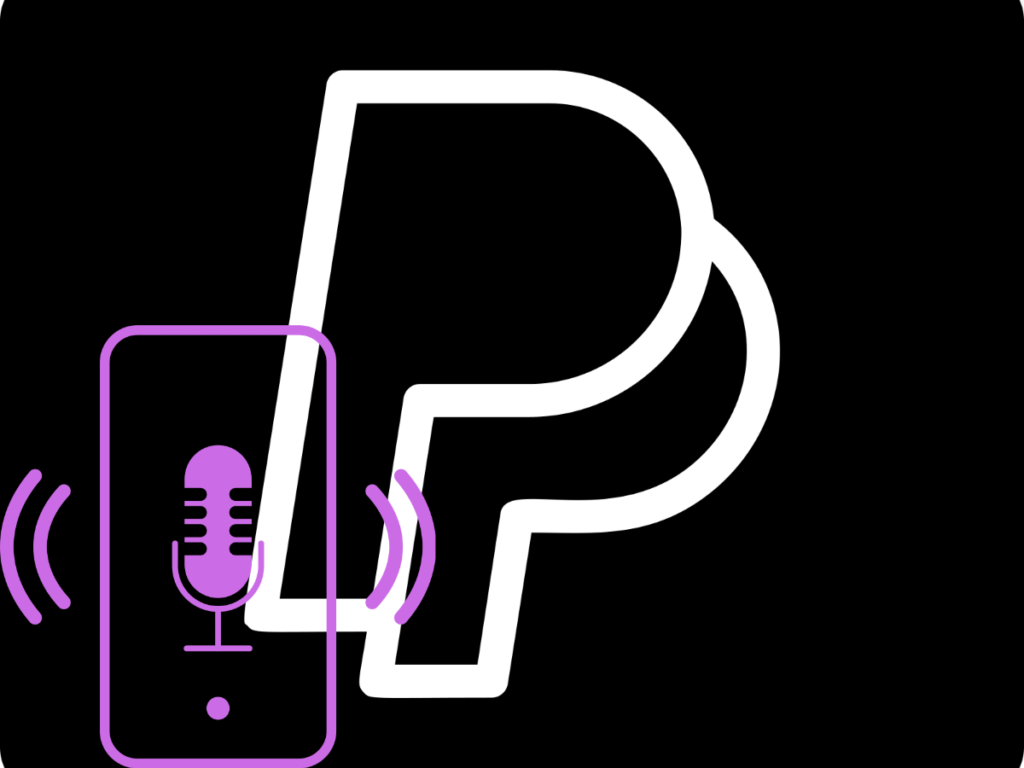PayPal’s speech biometric authentication for user registration uses high-quality customer support recordings. Explore the privacy and convenience implications of voice authentication using voiceprints.
Please be mindful of your language since the next time you yell at PayPal’s customer support robots, it’s possible that they’ll pay closer attention.
The business wants to patent a procedure for user registration for “voice biometric authentication.” This is how it goes: This technology will “non-intrusively collect voice data for a user” through high quality recordings of a users’ interactions if a user calls PayPal’s customer care line and speaks with (or yells at) the “interactive voice response” instead of a live agent.
Following the conversation, a user will get a message from PayPal asking if they want to set up voice authentication using the “voiceprint” that was gathered. This message may come in the form of an email, text message, or push notification.
The recording becomes the user’s voiceprint if they choose to participate. If customers choose not to, PayPal either deletes the enhanced-quality recording or keeps it (the corporation made clear that the recordings will be maintained alongside those that are regularly recorded for training in customer call center scenarios).
PayPal said new voice authentication will identify users calling customer support. This system saves time and money by eliminating “any manual efforts in enrolling the user,” according to the company. It will also avoid “susceptible to exploitation” temporary passwords, phone authentication, and security questions.
There is a lot to discuss about this. First off, despite stating that PayPal’s voice authentication technique will be utilized for identification during customer service calls, the document also made clear that there are other possible uses for it. This type of verification could eventually become a standard component of accessing your account, just like a password or a facial scan.
PayPal: Voice Recognition Ambitions
PayPal has already shown an interest in voice recognition. In 2016, the business made Siri-based payments possible. However, PayPal’s patent appears to include much more data collecting from the corporation than a Siri voice payment, drawing attention to the ongoing privacy vs. convenience debate in technology.
This technology suggests that when you call PayPal’s customer support line, high-quality recordings of your voice will be made. While that fact alone might cause some users to be suspicious, the majority of customer service lines, as has already been mentioned, record conversations for quality assurance or training purposes (as we are informed by the invariably cheerful robotic tape that begins each excruciatingly long wait for a human to mostly not answer our questions). In the meanwhile, PayPal is using this information to improve the user experience.
Additionally, a recent PayPal filing demonstrates that the company is interested in collecting as little personal unstructured data as possible by “masking” sensitive material within files. According to the document, the company intends to replace identifiable information in voice recordings with incomprehensible noises. When taken as a whole, PayPal might have a way to produce these voiceprints without also retaining user recordings that are particular to them.
In terms of security, utilizing biometric authentication is typically safer than relying just on a password and crossing one’s fingers. It is much more difficult to falsify biometrics like facial recognition, gesture recognition, and fingerprints.
It’s not likely, though. Voice cloning technology has emerged in the AI era, and it can now be used to fake anything from Drake songs to extortion calls to bank talks. PayPal must have a strategy in place for dealing with deep fakes if it ever decides to launch this option.












